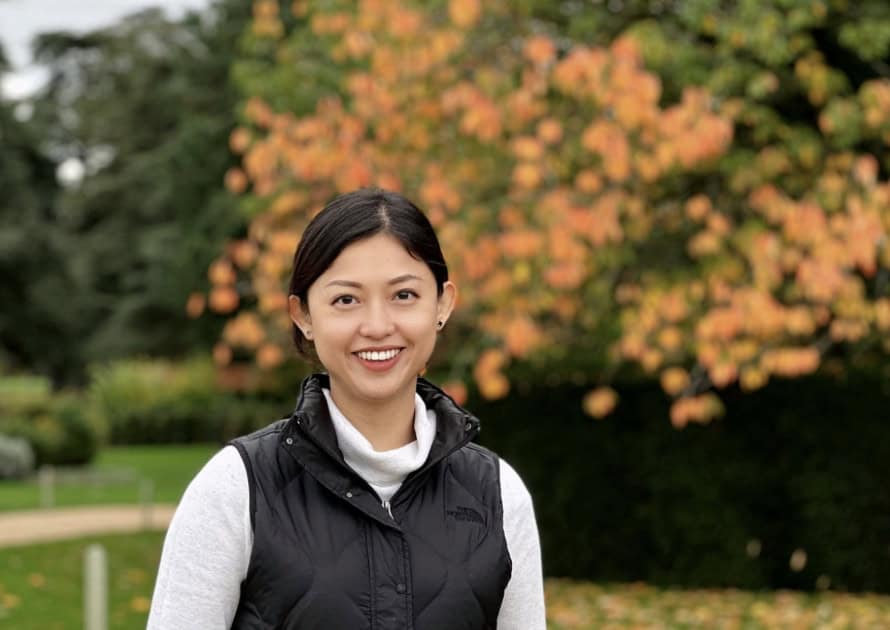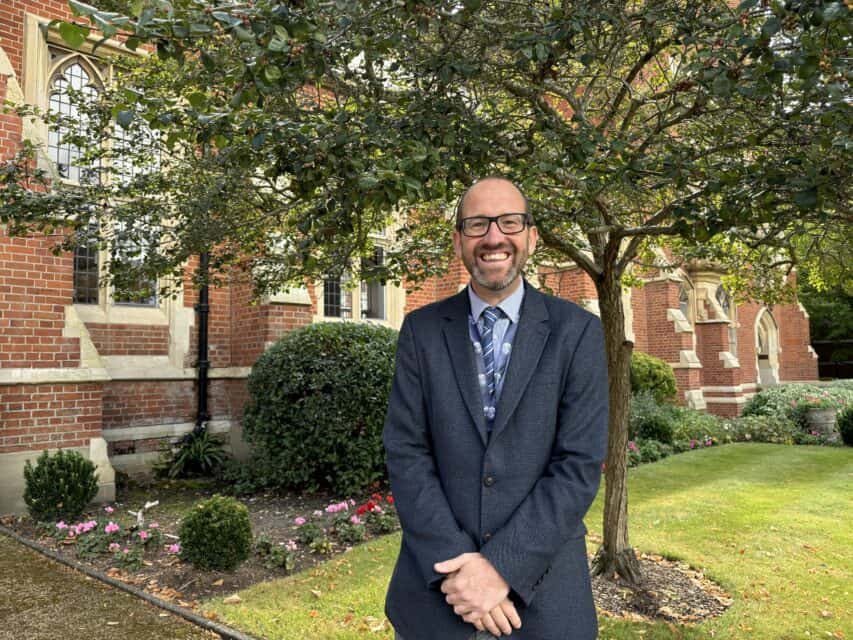With a background in law and political science and some study abroad experiences, working for the EU Commission and Erasmus+ was an “Erasmus dream come true” for Irene Sabio Gallego. Here she tells Сư�洫ý about the relatively new international mobility arm of Erasmus+, building links between Europe and the rest of the world.
Сư�洫ý: Tell us more about yourself – how did you choose your career path?
������:��I come from Madrid, and I am part of the Erasmus generation. When I enrolled at university in Madrid, I had the opportunity to study abroad.
I was very hesitant between Berlin because I loved German, and Brussels because I loved the EU. I chose Brussels and…well, more than 10 years later, I am still working for the EU. It was kind of my Erasmus dream come true.
“The Erasmus program… is something everybody likes”
I studied law and political sciences and then I had the opportunity to do a program on EU Studies in the College of Europe and there I had the opportunity to go into policy specifically of higher education. I have to say it’s not by chance that I am in Brussels. I really wanted to work for higher education and Europe.
Сư�洫ý: What does your position entail?
ISG: I have a wonderful job, because I have the opportunity to work for the biggest brand name of the EU, the Erasmus program, which is something everybody likes, and everybody knows somebody that had a good experience with it.
My job is sometimes very technical because I am in the team that is responsible for the international mobility part of Erasmus+, launched five years ago to support academic mobility between Europe and the rest of the world. In my job, I get to liaise with many universities and students and I am working specifically with the US and Canada, so it’s a very varied job.
With the international dimension of the Erasmus program, we work on student exchanges and – what is less known – also staff exchanges.
That’s important because you need to have faculty and administration on your side if you want to really change things in universities and make them more international. Altogether, we are doing around 40,000 of those academic exchanges per year across the whole world.
“You need to have faculty and administration on your side if you want to change things”
Сư�洫ý: What is the top destination for these programs?
ISG: Our budget is finite, with dedicated budgets for different geographical regions linked to the wider priorities of the EU. For example, we have a rather generous budget to work with countries neighbouring the EU to the East and South, and in these regions, we have many exchanges.
But that doesn’t mean that other countries with which we have fewer exchanges are not popular, because I can tell you for example that Latin America is 10 times oversubscribed.
This is one of the beautiful things of this program: when we started in 2014, we weren’t sure how the universities would get along, because we had geographical budgets and we knew that some countries had a preference to work with certain partners with whom they had a long-standing tradition of cooperation.
In the beginning, we had some universities complaining: “I would like to have more budget to work with Serbia and I am not that interested in working with Morocco, so why can’t I just switch?”
We explained patiently that our idea was precisely to encourage universities to enter into new partnerships as well as consolidating those that existed already. And now, five years later, that’s what we are seeing: many universities have started something new thanks to the Erasmus+ program, and they are using the budgets available throughout the world, so it’s very rewarding.
“Latin America is 10 times oversubscribed”
Сư�洫ý: What do you think the role of these programs is in building soft power?
ISG: For anybody working in the education sector, it’s clear that the benefits go well beyond the strictly educational components of the programs. We have just released the latest Erasmus impact study and we were looking at the impact that this academic mobility has on the participants.
Over 90% of the participants said they are better suited to understand cultural differences and be more open-minded to different opinions, also linked to different cultural backgrounds, and I think this is of huge value.
It shows you to what extent all these international exchanges create personal links that go beyond the experience of the student for the period of the exchange – it’s something that stays for life.
In the long run, these people-to-people contacts are as important as all the other benefits that participants are getting, because we are building a world where people can understand each other better.
Сư�洫ý: Any comment on the Brexit situation?
ISG: We are waiting to see what happens. What I can say, working for the EU Commission and Erasmus, I hope that in one way or the other the UK will still be there, because it’s an important partner for all European universities and it’s very long-standing cooperation which has to continue.
“The UK… it’s an important partner for all European universities”
But we need to wait to see what kind of decision is taken.
Сư�洫ý: What do you think is Europe’s biggest draw for international students?
ISG: I think the quality of European universities is something that’s already clear – it’s the primary reason. Our system is very open: when we look at student debt and access to education, in the EU there are many different systems and tuition levels, so that’s another reason for which it can be very appealing.
And I think it’s very good that we have this high turnout of European universities and agencies in NAFSA, because it’s important that people see all the different options they have in Europe; it’s a very diverse offer and they can go to many different countries, different universities that are at the top of different fields, and every student has a good university that they can find specifically suited for them.
This is also a value of what we are doing with Study in Europe, that we try to bring forward all the positive points of our education systems and the variety of our universities.
Сư�洫ý: What will be the biggest legacy of the Erasmus program, in 20 years’ time?
������:��I hope it will continue to exist, first of all, so it will be an ongoing legacy that continues to build. But we can already see it in this Erasmus generation.
For example, I find it impressive to see that we have the High Representative of the Union for Foreign Affairs and Security Policy, Federica Mogherini, was herself an Erasmus student. We also have prime ministers who have been Erasmus students.
“I think this shows that people understand the power that these programs have to build cohesive societies”
This helps them understand that this is something very important that they have to support, which is probably why for the next generation of programs after 2020 the proposal is to double the budget for Erasmus+ to €30 billion over seven years.
I think this shows that people understand the power that these programs have to build cohesive societies, to have citizens that are happier not only with their professional lives but also their personal lives because these experiences are very transformative.
So, 20 years from now, I hope we’ll have a broader community. Now we can support around 4% of students, but we want to go much further than that and get many more students to participate in our programs.



